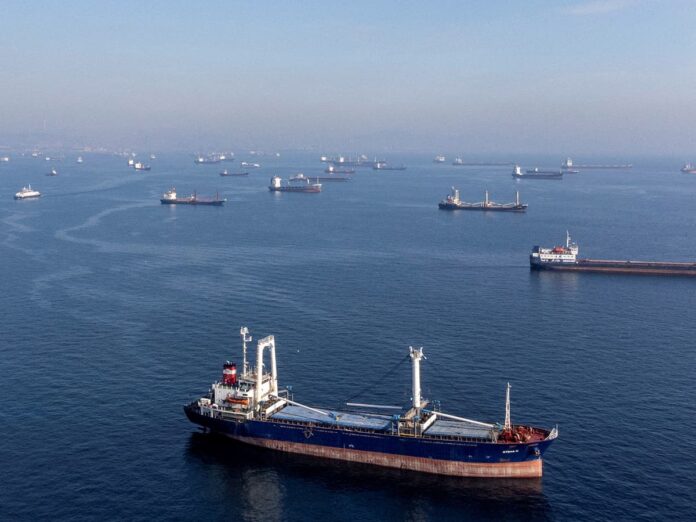A deal between Russia and Ukraine allowing vital food supplies to be shipped safely across the Black Sea has been extended.Antonio Guterres, the United Nations secretary general, said he welcomed the renewed Black Sea grain deal. The agreement was first reached in July to end a blockade of Ukraine’s ports, which was sending food prices soaring and threatening starvation for many around the world.Russia said it was not prepared to ‘chop up’ the deal but stressed that provisions for the relaxation of sanctions on its own agricultural and fertiliser exports were vital to its cooperation, according to the Russian state-owned Tass news agency.The export of Russian ammonia for fertiliser via a pipeline to the Black Sea is not yet agreed as part of the renewed deal, a source familiar with discussions told Reuters.The deal, facilitated by Turkey and agreed by Russia, Ukraine and the UN, will be in place for another 120 days, according to Ukraine’s agriculture minister.Mr Guterres thanks Turkish president Recep Tayyip Erdogan and his officials for pushing for the extension of the deal, which creates a safe route for ships from Ukraine’s Odesa port to travel through the Bosphorus Strait that divides Istanbul.’Without their generosity and commitment this initiative would never have been born. Istanbul remains the centre of a remarkable diplomatic achievement,’ Mr Guterres said.Guterres and Ukrainian infrastructure minister Oleksandr Kubrakov by the sea port in Odesa as exports restarted in summerA blockade of Ukraine’s ports that began as Russia invaded in February blocked tens of millions of tonnes of grains from reaching their destinations. Ukraine holds a 50 per cent share of global exports in sunflower oil and accounts for a large portion of the world’s supply of other grains such as barley and maize.As many poor nations rely on Ukraine and Russia for as much as 50 per cent of their wheat imports, the price of staples like bread skyrocketed in the early days of the war.Russia alone is the world’s largest fertiliser exporter but was unable to make many deliveries due to sanctions before the deal.Moscow threatened to pull out of the deal late in October after what it said was an attack by Ukraine on its Black Sea fleet launched from a safety corridor established by the deal. The UN said there were no ships in the corridor on the night of the attack.


